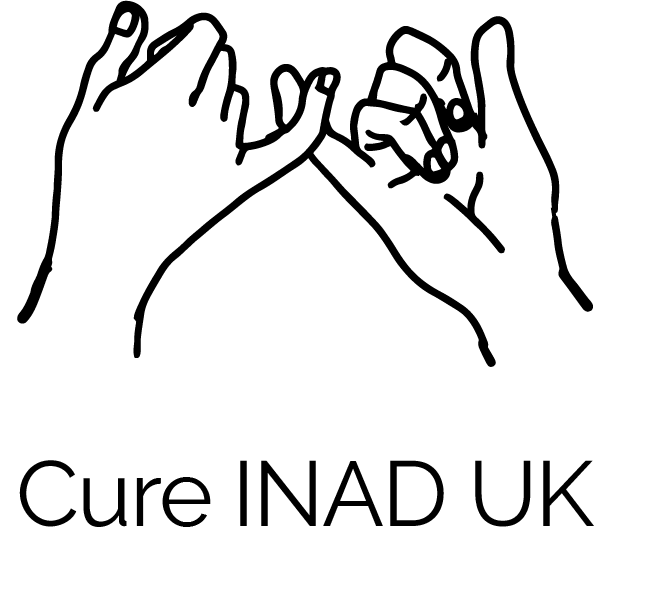Grant paid to UCL/Great Ormond Street
Cure INAD UK recently paid a grant of £7222 to University College London/Great Ormond Street Hospital for their INAD research.
Thank you to all of you for helping us to make this happen.
The research being carried out is for developing biomarkers for INAD/PLA2G6.
What are biomarkers?
Biomarkers are chemicals that can be measured in the body that can tell us about disease. For example, there are blood tests that can measure cholesterol and sugar that tell us if someone is likely to have heart disease or diabetes. After a medication is given, the test can be repeated to check if the drug is effective. The level of the biomarker can also tell us about the severity of the disease in the patient.
Why are biomarkers urgently needed for INAD?
For INAD, there are currently no biomarkers. This could potentially hamper the development of effective therapies for INAD because with any proposed treatment, it will be harder to measure how effective it is.
Potential Benefits of Biomarker for INAD:
Help doctors make the diagnosis earlier in patients.
Improve the understanding of disease.
Provide a more accurate picture to families of what the future holds for their child (prognosis).
Assess how severe the disease is and how quickly it is progressing.
Help assess the effectiveness of upcoming novel treatments in future clinical trials.
What progress has been made?
INAD research is already well underway at UCL. Blood urine and spinal fluid has been collected from children with INAD from all over the world. There is an ultra-sensitive technique of measuring biomarkers that they want to use on these samples. This technique is a fast and reliable method that is over a 1000 times more sensitive than traditional approaches. This work will be done in conjunction with the national UK Dementia Research Institute (also based at UCL) who have an excellent track record of identifying and validating biomarkers for dementias (like Alzheimer’s Disease) and other brain disorders.
The grant we have paid will directly help to fund this project and accelerate finding an effective treatment for families affected by this devastating condition. It will also help scientific advancement in genetic and dementia research.


